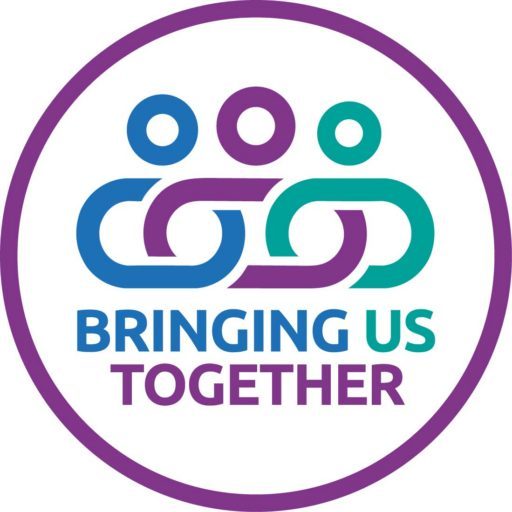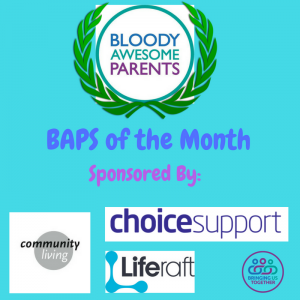C: A to Z of Family Rights and Lives
C is for
 Campaigning: Despite us having more than enough additional tasks on our plates, we often find ourselves been driven to campaign on things we know and feel are not good enough for our kids and families. There are some great organisations out there campaigning but too often, parents are unsure how to get involved. Bringing Us Together are trying to collate all the campaigns we hear about (be they surveys, polls, written responses, or social media groups) in one place. If you know of any campaign, please either add direct to our forum or drop us a line.
Campaigning: Despite us having more than enough additional tasks on our plates, we often find ourselves been driven to campaign on things we know and feel are not good enough for our kids and families. There are some great organisations out there campaigning but too often, parents are unsure how to get involved. Bringing Us Together are trying to collate all the campaigns we hear about (be they surveys, polls, written responses, or social media groups) in one place. If you know of any campaign, please either add direct to our forum or drop us a line.
Care: The definition of Care is “the provision of what is necessary for the health, welfare, maintenance, and protection of someone or something.” How effective is our Care system? Social Care, Health Care, Welfare and Safeguarding – does any of it really put the needs of the child, young peron or family first? Care can often be a postcode lottery. Care can often depend on who completes the assessment. Care, when it comes to safeguarding our children and young people, can all too often be indefensibly poor and inadequate.
Care Workers – We want people in our lives to care for our kids and love and respect them like we do. The role of people who “care” for disabled people is often undervalued, low status, underpaid (recently there have been heavy cuts on staff wages from some providers) and poorly trained. Many of these genuinely do care but often, the bureaucracy involved with the role takes away the time for them to do anything other than the basic care requirements, there is not time to care by connecting with the young person. Your child or young person may be known as “the service user”, not by their first name.
Carer: Yes, your new title. Not Mum or Dad but Carer. Carer of…. I bet that wasn’t in your vision of the future. Many families have to change feeding tubes, give medication and provide daily physio for their children. Many of us will have dependent young people; young people who require around the clock care despite having no medical needs.
Charity: There are an amazing number of charities out there. Some of them very old, established charities; some new and dynamic. Some try to work on a national scale while others keep it local. Some charities offer grants, some offer services, and then some appear to exist for political benefit. Some have very well paid chief executives and smart offices in London. Are all charities of benefit? Are all charities charitable? Did any charities help you and how?
Choices: Something we often lack. Choices are often either not available or extremely limited. Choices often depend on your label or diagnosis. Choice is something sadly missing from the world of Family Rights. It is an easy word to say but actually very hard to achieve.
Circles: Circles of Support are a great person-centred practice. Circles can offer genuine, independent support whilst also allowing families to feel a level of control. However, many people know nothing of them or confuse them with Team Around the Child/Family meetings. Community Circles are exploring how Circles of Support can be delivered at scale.
Communication: This is often the biggest issue around Family Rights, Lack of communication, poor communication or the assumption that because you can’t speak, you have nothing to say. Families are often left in the dark about their rights due to poor communication. Jargon filled communication is also used to empower practitioners and leave families feeling inferior and inadequate. Communication is key if we can get that right, everything else will be so much easier.
Our children’s communication is a human right. Seeing the child’s potential to communicate and recognizing even their most simple of responses allows that child’s voice to be heard through all sorts of alternative methods.
Commissioning: Commissioning is the process of ensuring that care services are provided effectively and that they meet the needs of the population. The Department of Health describes commissioning as the means to secure the best value for local citizens and taxpayers. Now, if Commissioning, like Ronseal, did like it said on the tin, then services would meet the needs of our young people but sometimes commissioning relies heavily on what services are already available rather than what services are in fact needed. It can often be a case of “we know you want a, b or c, but we only have a preferred supplier who can provide d at a much cheaper price so that will have to do”. How many services do you know of that are under used because they weren’t actually needed while the services your family need don’t appear to exist?
Consultation: Consultation after consultation. So many consultations out there but how often do they lead to change? Consultation for consultation sake (aka Hit and Run Consultation) is far too common. “We need to show that we asked for their opinion” or “ask that group of parents for their view, they always agree with us” – both of these are not unheard of practices, especially within Local Authorities. Have we got any examples of what good consultation looks like?
Control: Something often lacking in the world of Family Rights. Families are often dictated to and steered and should you dare to challenge the status quo, be prepared for labels such as “neurotic”, “demanding” or “rotweiller” to be provided. Giving our young people the control of their lives ultimately is what we strive for.
Councils: like private business Council departments are given a budget each year. This means that all services including of course Social Services only have a limited amount of money available to use and so many of the services our kids used such as youth services, inclusive clubs, play services have been cut or lost completely.
Cr*p: that is sometimes how we feel when it all gets too much and we are facing too many barriers and complications.
Criteria – this is based on levels of need, and set out by the Government to ensure there is consistent, clear and fair access to social care services across the country. Officially, this set of rules is known as the ‘Fair Access to Care Services‘ (FACS) criteria. This means lots of assessments and form filling done by social workers who sometimes do not know our children and maybe don’t have the time to listen to us as parents. Although all local authorities must apply this system to assessments for adult social care services, they can decide for themselves which FACS bands of risk they will meet. In most areas social services are only provided to disabled people with the most needs. ‘Critical’ or ‘Substantial’ care needs is when you are likely to get social care services. If your needs are assessed as falling within the ‘Moderate’ or ‘Low’ risk band, you will not be eligible for directly provided social care services from social services and will be signposted and given information and advice. If you are lucky!
Debs is one of the co-founders and Directors of Bringing Us Together. She is mum to three child with a variety of SEND and has a great husband.







